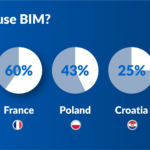Sectors - Business
Materials and Labour Shortages Threaten Recovery

Subcontractors throughout the UK are struggling to take advantage of the economy reopening due to supply chain issues, which are causing a shortage of raw materials, according to a new Subcontracting Growth Report from Bibby Financial Services (BFS).
Despite half (50%) of businesses seeing an increase in activity since COVID restrictions began to ease in the UK and fewer than one in ten (8%) reporting a reduction, shortages in skilled labourers and rising material costs are threatening to dampen long-term growth. Nearly six out of 10 (58%) of subcontractors said that the increasing cost of raw materials is the biggest concern to their business, whilst 44% listed a shortage of skilled labour as a concern.
Since the onset of the COVID-19 pandemic, 80% of SMEs have taken some form of action to protect their business, including furloughing staff (43%), accessing UK Government loans (43%) or stopping operations entirely for a period (39%). In addition, Brexit continues to prey on the mind of many. Over half (52%) of the sector want the Government to do more to ensure that tariffs on goods to and from the EU are avoided, to prevent a further increase in the price of raw materials.
Sharon Wiltshire, Head of UK Operations at BFS, said: “It has been a difficult year for the construction sector, and for subcontractors especially. SMEs, which make up the bulk of the sector, have shown incredible resilience in the face of protracted challenges. However, it is likely that the true impact of Brexit-related skills and raw materials shortages, and the winding down of Government support measures, is yet to be realised.
“With subcontractors typically asked to pay a large proportion of labour and materials costs upfront, they are highly dependent on having a working level of cashflow at all times. While we are seeing twice as many businesses use Invoice Finance compared to 2019 (8% to 4%), over four in ten (41%) still do not leverage external funding to support their operations. As Government loans come to an end, SMEs need to think proactively about the finance options they have available to manage rapidly changing costs, and plan for growth.”
If you would like to read more stories like this, then please click here
Related Articles
Related Articles
- Planning for the Future of Aggregate Logistics
8 Dec 21
As the UK takes its first steps to recovery from the pandemic, construction activity is
- How Can SME Developers Gain a Competitive Edge in the Market?
18 Nov 21
SME developers are not on top today. 40 years ago, 2 out of every 5
- House Prices Rise Again in September
18 Nov 21
Average house prices in the UK increased by 11.8% over the year to September 2021,





